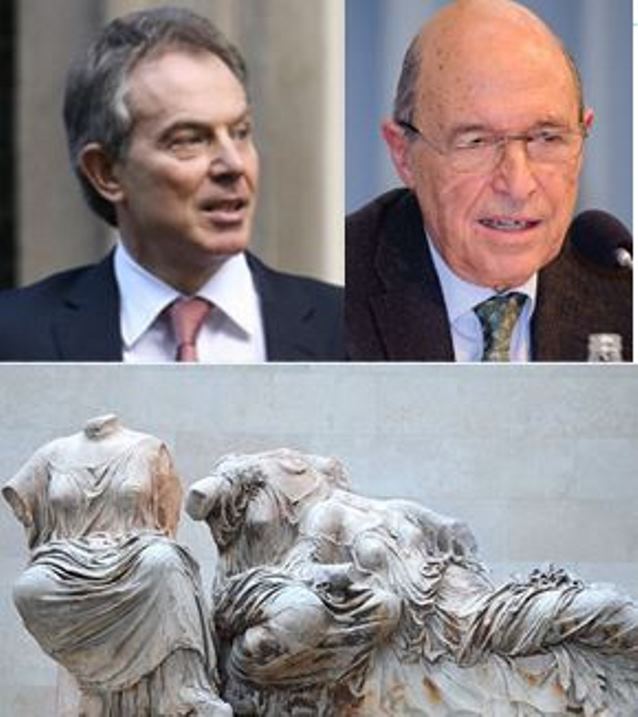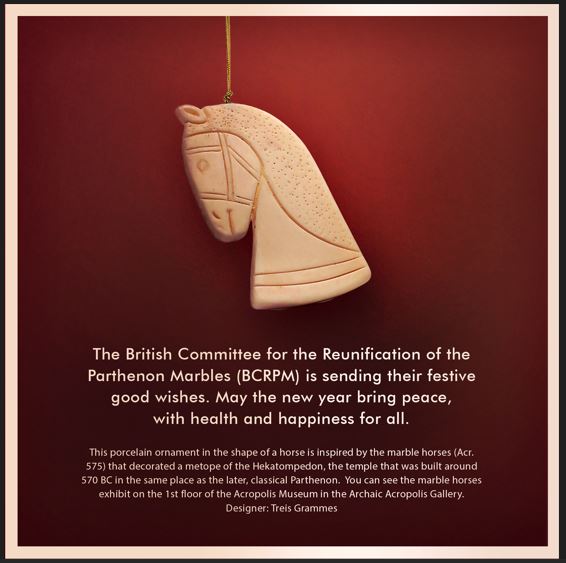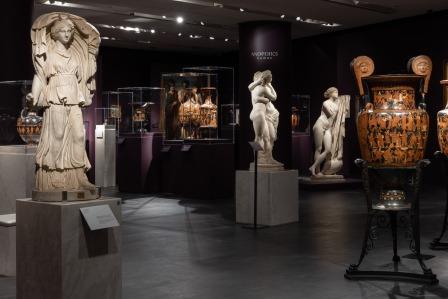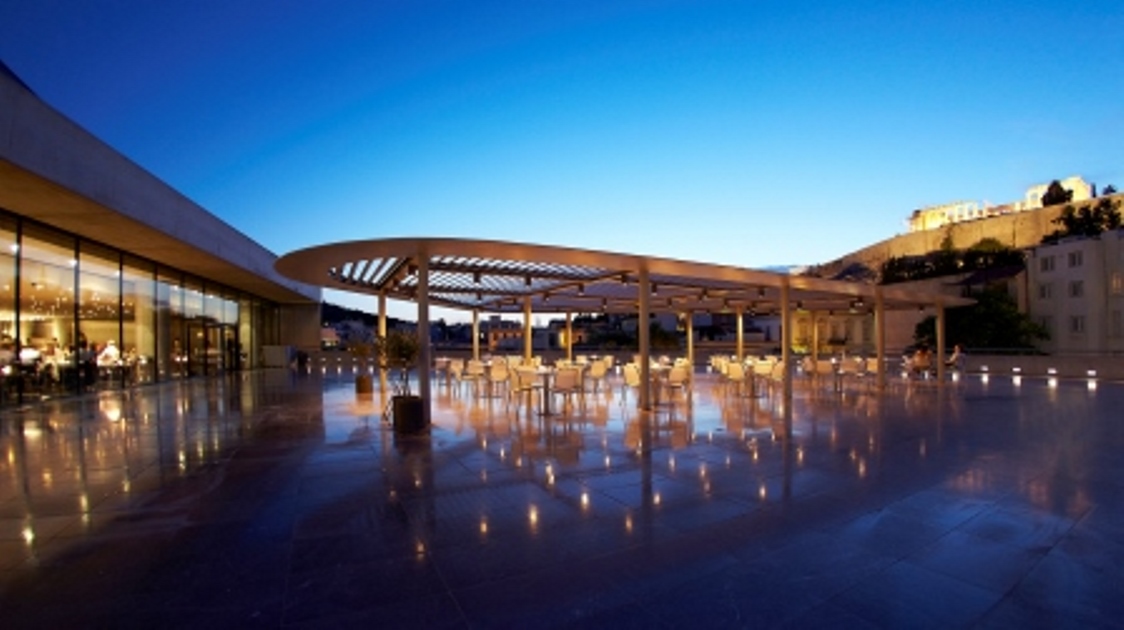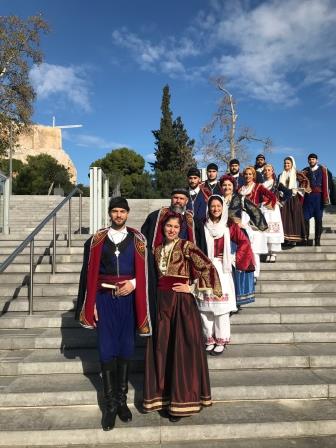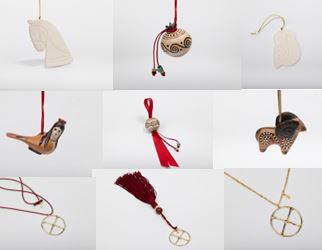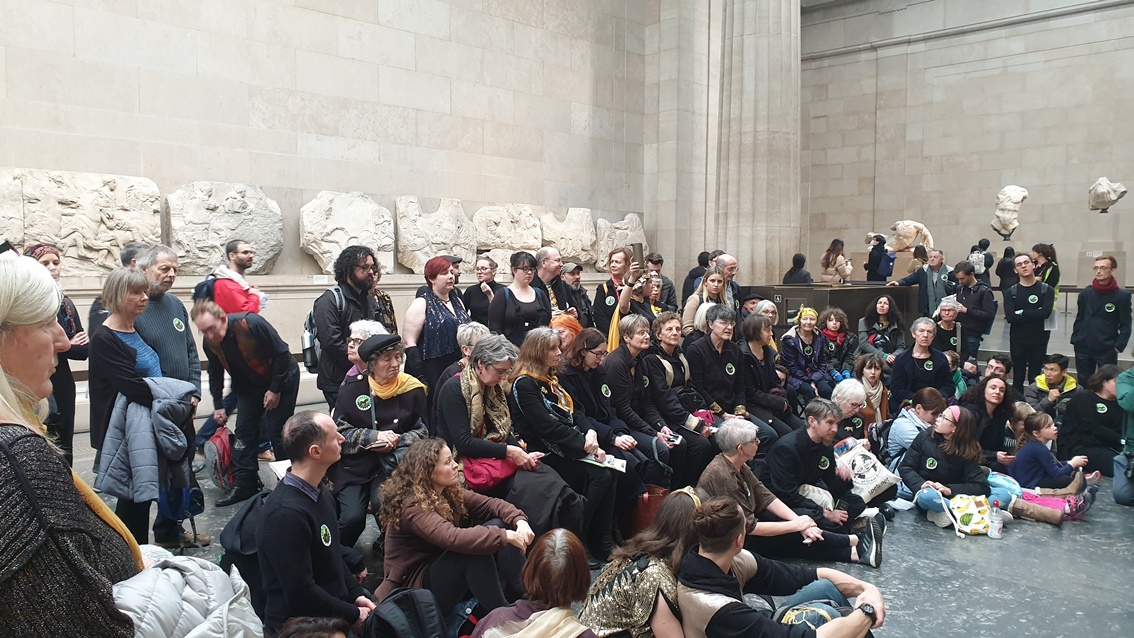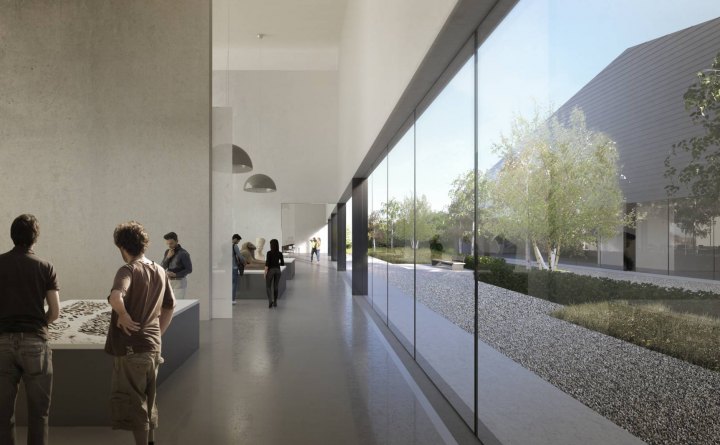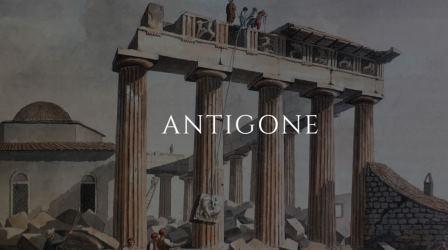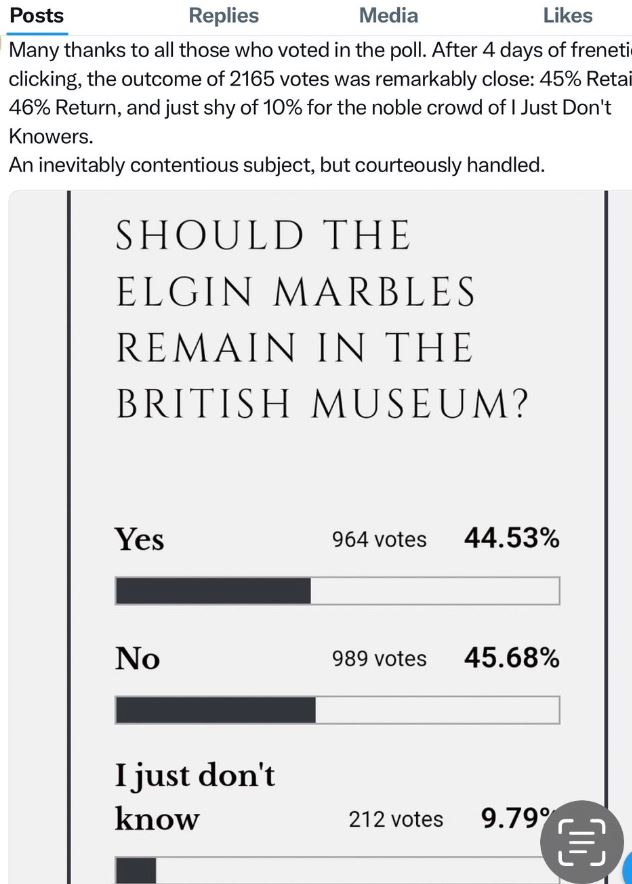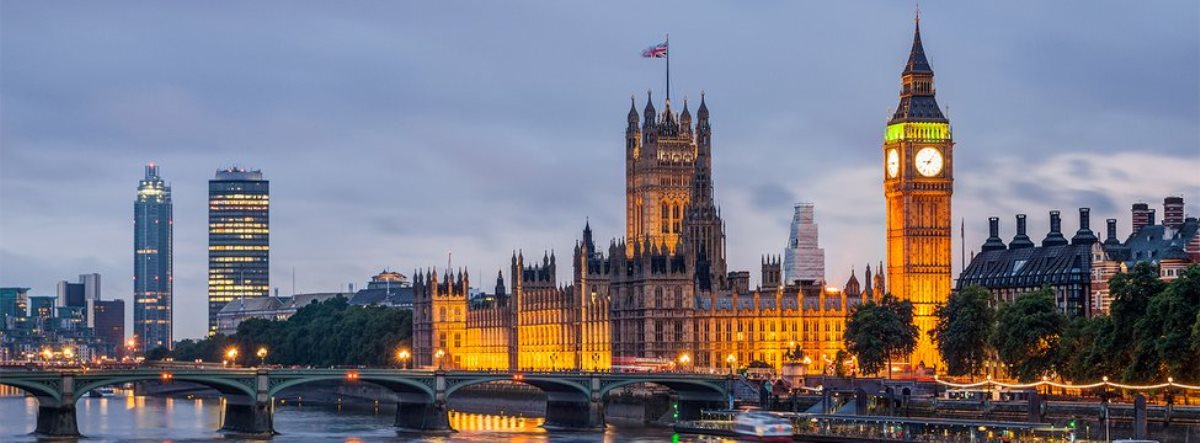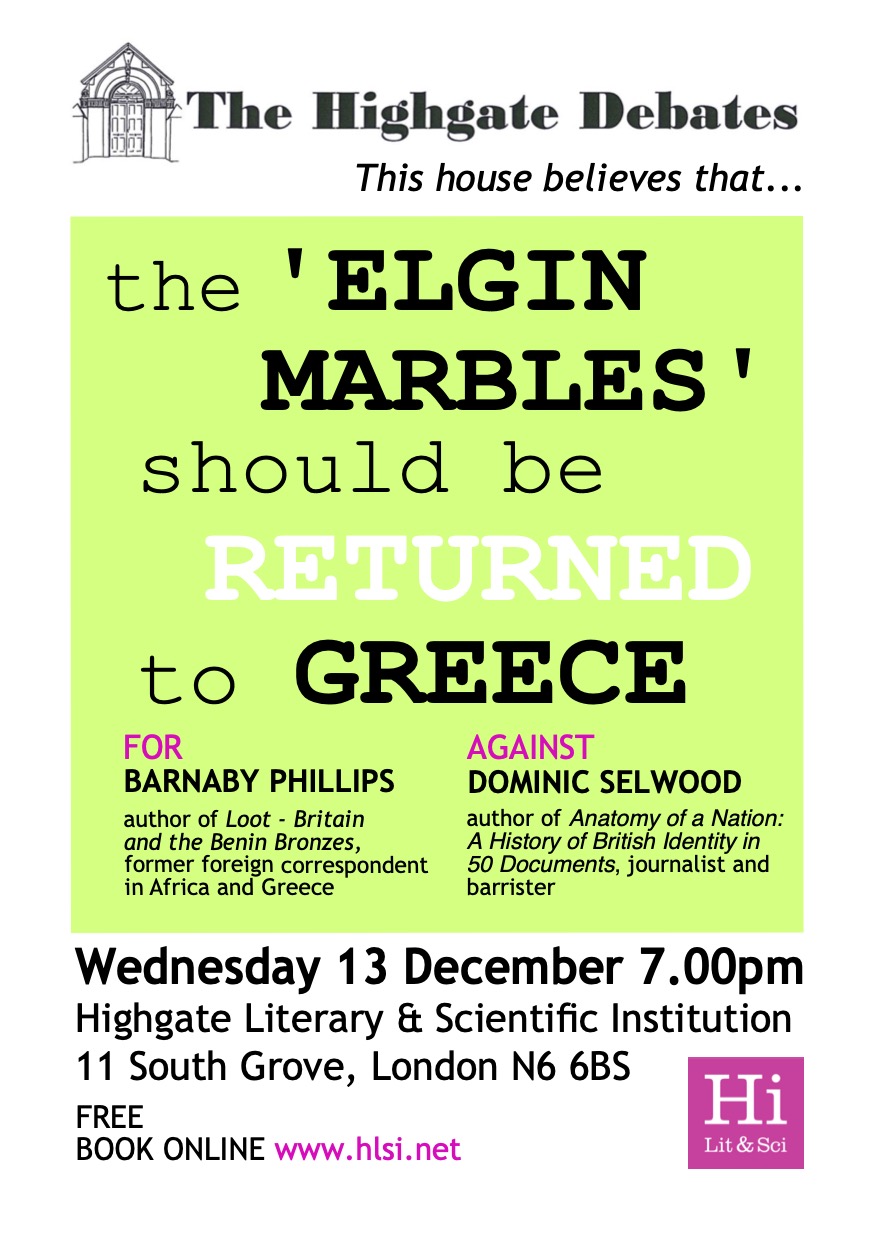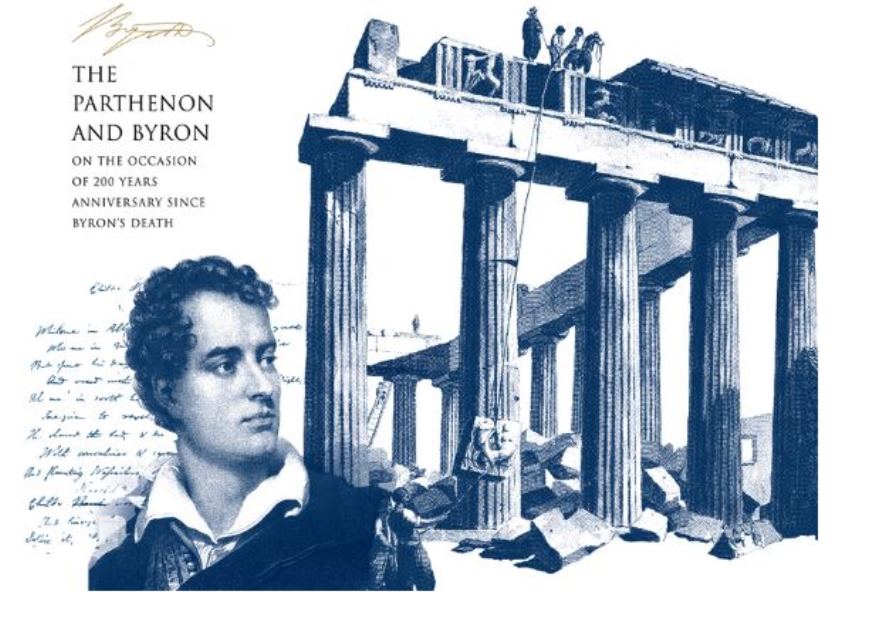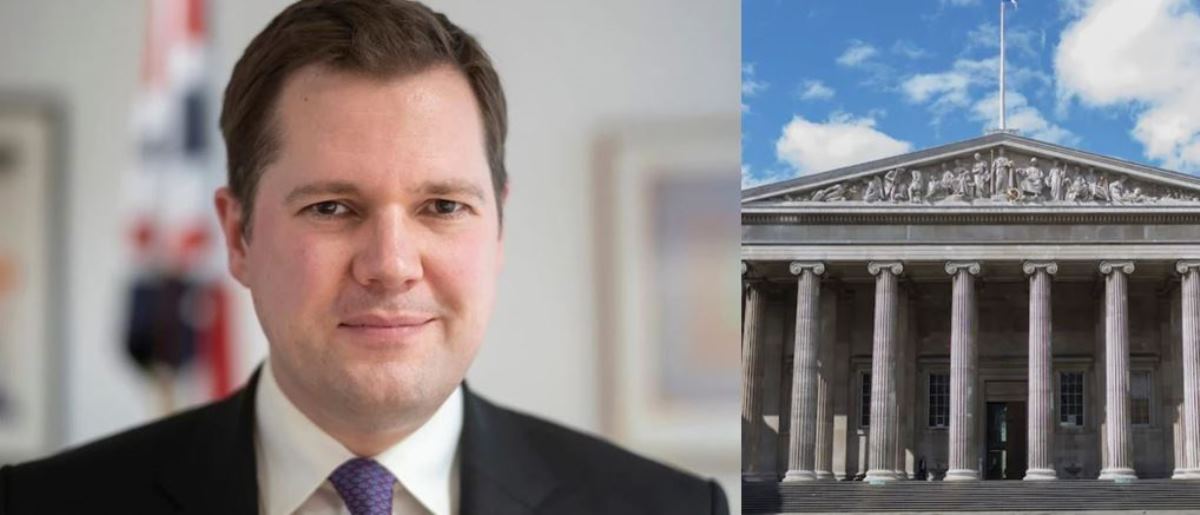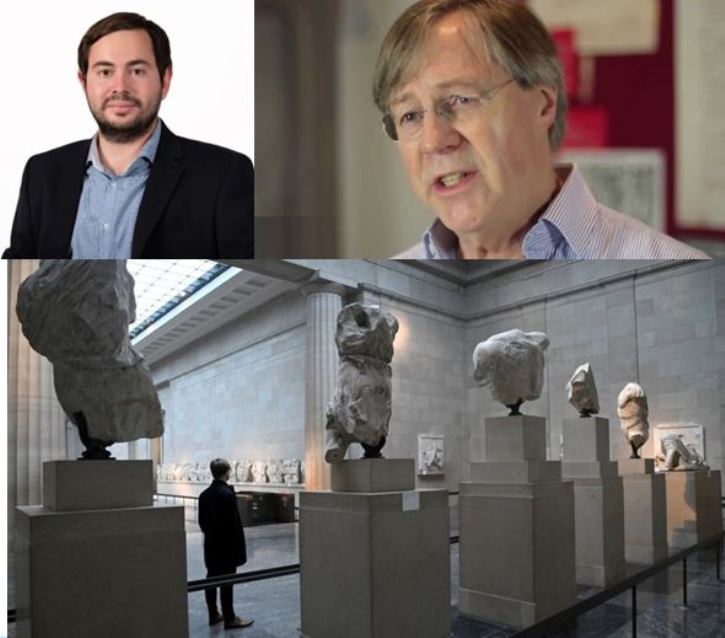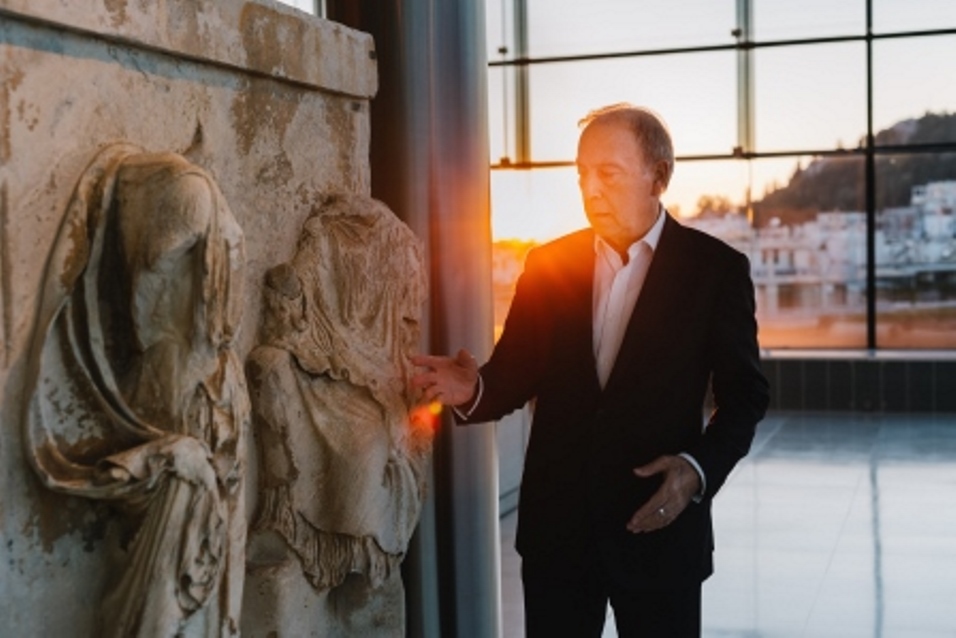For those that were unable to attend last night's debate at the Highgate Literary & Scientific Institution,supporting the reunification of the Parthenon Marbles, author Barnaby Phillips. The debate was entitled:This house believes that the 'Elgin Marbles' should be returned to Greece.
Janet Suzman, BCRPM's Chair attended the debate. BCRPM wishes to thank Barnaby for this photo and his words.
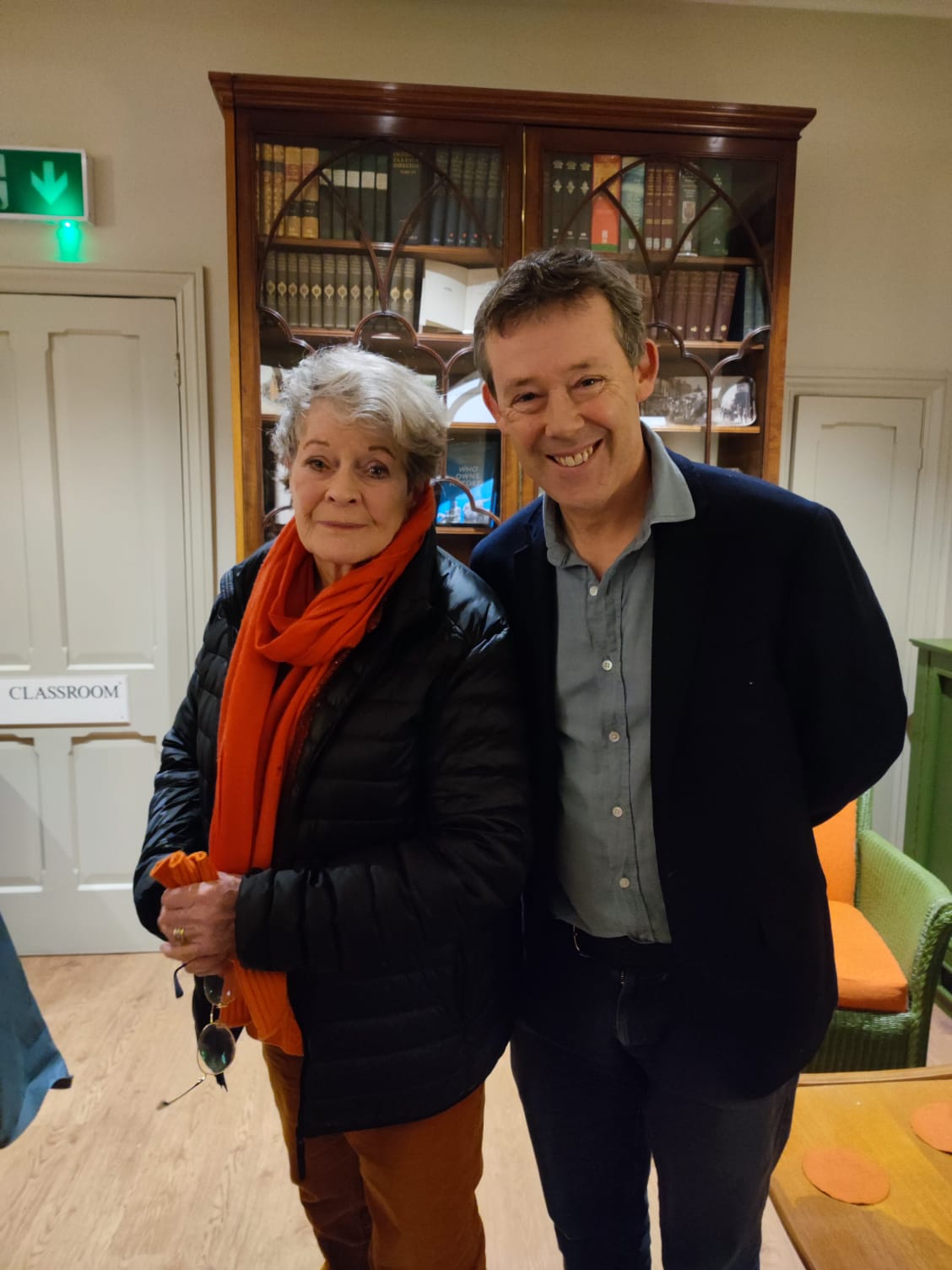
Below Barnaby Phillips presentation to those that attended the debate.
Thank you, especially to Dominic and Freya.
It’s good to know people who want the marbles to stay in this country are prepared to discuss it- the Prime Minister should take note.
later we will hear from Elena, and she will tell us what the marbles mean to Greece.
But I want to talk about us, the British.
Because this is not a new debate. It has haunted Britain for more than 200 years. So my question to you tonight is, how do we resolve this?
How do we stop this slow haemorrhaging of our national reputation, and the reputation of our greatest museum?
The Parthenon and other temples on the Acropolis in Athens, says UNESCO, are a ‘universal symbol of the classical spirit and civilisation… the greatest architectural and artistic complex bequeathed by Greek antiquity to the world’.
In fact, the Parthenon is the logo of UNESCO.
Its frieze, the panels of the metopes and the pediment sculptures - depict gods, mythical creatures and ordinary people- and are not mere adornments to the Parthenon.
They are made from the same marble; together they convey a universal – and timeless- message…
that if we respect our gods and live in a democracy dedicated to peace, we humans can be happy.
So…how do we show these sculptures, intrinsic parts of that temple, to their greatest impact and authenticity?
Let’s go back, to what people said when Lord Elgin’s men attacked the Parthenon with saws and chisels.
When they deliberately destroyed part of the cornice in order to remove the metopes from that temple.
When they dropped a block of the frieze, snapping it in two. You can see the crack through the arm of a priestess in the British Museum.
When they cut one column down the middle in order to make it easier to carry.
When Lusieri wrote to his master Lord Elgin that he had been ‘a little barbarous’ in removing an especially fine sculpture .
These removals described by the - out-going - head of the British Museum, Hartwig Fischer, as a ‘creative act’.
Lord Elgin wrote back from Constantinople, “would it be permissible to speak of a caryatid?”
And so they did – saw off a caryatid, one of those handsome stone women, from the Erectheion temple.
They left a pile of bricks in her place to prop up the porch, standing beside 4 bereaved sisters..
Like a mouth spoilt by a discoloured tooth, said a British visitor.
The remaining sisters, a British MP wrote in 1813, ‘fill the air each evening with… mournful sighs and lamentations’.
What else did people say about what happened to the Parthenon itself?
How was this act judged contemporaneously?
Don’t worry- I don’t even need to quote Lord Byron.
Here’s John Galt, a Scottish novelist in Greece ; ‘the rape of the temple by Lord Elgin the theme of every English tongue that came to Athens’.
Or Professor Edward Daniel Clarke, who saw slabs of marble shatter into dust as Elgin’s men tried to lever off the best sculptures; an Ottoman soldier ‘dropped a tear and in a supplicating tone of voice, said to Lusieri, ‘telos’.’
Telos- stop- enough.
Robert Smirke another British eyewitness, who later designed the British Museum’s facade- ‘men laboured with iron crows..each stone as it fell shook the ground with ponderous weight… …the groan of the injured spirit of the Temple’.
Edward Dodwell, an Irish painter; ‘… beauty reduced to shattered desolation.. The whole proceeding so unpopular in Athens it was necessary to pay the labourers more than their usual profits’.
Ioannes Venizelos, an Athenian writer; ‘the deplorable stripping of the Temple of Athena…like a noble and wealthy lady who lost her diamonds…Oh how we Athenians take this event to heart’.
Maybe- maybe- this sordid act was legal.
But was it moral, was it ethical? What can we do about it today?
The British parliament in 1816- ‘unjustified’ ‘act of spoliation’ worried some MPs- - no wonder they only gave Elgin half the money he wanted, and not the English peerage he craved.
They knew he was on weak ground.
Perhaps they were shamed by the irony- that in Paris at the same time, Wellington was handing back Napoleon’s plundered treasures.
Because, as Lord Castlereagh put it, these treasures ‘which all modern conquerors invariably respect as inseparable from the country to which they belonged’
….
And so the great British soul-searching began.
I could quote through the decades, but I’ll jump forward.
Harold Nicolson, 1924, pleads with his Foreign Office colleagues to ‘put right an ancient wrong’.
We almost did it once, but only when we needed the Greeks.
1941, to encourage our brave and only allies in Europe.
Our hour of need, but not our finest hour, it turns out….
The Foreign Office recommended their return.
But – the tide of war turned- and the recommendation was quietly shelved.
And so to today.
Well, we know what our king thinks, but what about us?
The most recent poll- 2021- 59 % of British people say return, just 18 % say keep.
You can go to the Duveen gallery in the BM.
The marbles are diminished in that room, and not only because of the disastrous way they were ‘cleaned’ in the 1930s, with chisels and silicon carbide.
The BM’s secret report at the time said “damage which has been caused is obvious and cannot be exaggerated”.
The Archbishop of Canterbury urged the Director to keep this hidden from the Greek government.
But anyway, you can see the marbles facing inwards, the opposite to how they were on the Parthenon.
I’ll quote Mary Beard, a BM trustee, ‘the intention…is to efface what remains in Athens…the Duveen effect is to squeeze that memory out’.
You can see Athena’s torso- but not her right breast.
You can see half of Poseidon’s torso- the front in London, rear in Athens
You can see half the horsemen of the North Frieze- the cavalcade is partitioned.
Are we saying it is better these sculptures remain amputated?
As the Greek Prime Minister Kyriakos Mitsotakis put it – and apologies, Rishi Sunak- ‘like the Mona Lisa torn in two’.
Please go to the New Acropolis Museum in Athens – you’ll see the frieze, the metopes and the pediments facing outwards, as designed, perfectly aligned with the Parthenon, clearly visible on top of the nearby hill.
Not in a grey room with a sometimes leaking roof, and under artificial light, but under a blue Greek sky.
And the BM used to say they couldn’t send the marbles back because the Greeks had nowhere to put them!
Except, it could be better. The Parthenon Marbles could be reunited.
Not to boost Greek nationalism.
The point is that in the New Acropolis museum, we all experience a wonder of the world in the most authentic way that is now possible.
Now, I know everybody kicks the BM these days.
The thefts of – it now says- 1,500 pieces of ancient jewellery- the sacking of the curator for Greek collections- who says he’s innocent- ‘irony’ hardly does it justice.
Today people say the BM is not only incompetent, but also hypocritical.
I think that’s a cheap shot, and it’s not an argument I hear from Greece very much.
More significant, for me, as someone who loves the British Museum, is how this stand-off hurts it.
Not only because its international reputation, its ethical standing, are slowly eroding away.
But also in more practical ways.
Because of the Parthenon Marbles, the Greek ministry of culture does not permit loans to the BM, and the BM dare not even ask for loans from Greece.
This embargo applies only to the British Museum, not other museums in Britain. It cuts it off from opportunities.
It prevents a ‘global museum’ from being truly global.
Maybe some of you saw the exhibition at the Ashmolean on ancient Crete- 100 objects never seen in this country before.
That could not happen at the BM. Unless…
Last week, we saw a glimpse of what co-operation means. The British Museum lent to the New Acropolis Museum a magnificent ancient vase- never before loaned out.
This was a result of the ongoing talks between George Osborne and the Greek government….now imagine the generous spirit of the Greeks, if the Marbles were returned.
Who knows what they’d lend us…maybe gold from Mycenae, maybe the statues of Poseidon or the boy riding a horse which you might have seen in the National Archaeological Museum in Athens?
The point is, the BM would be reunited with more Greek culture, not cut off from it.
My friend Alicia Stallings, an Athenian poet, says; ‘the debate about the fate of the Marbles is not ultimately between Greece and Britain; from the start it was really between Britain and itself, something to take up with its own conscience….Greece cannot compel the Marbles be returned, nor I think ultimately would it want to.’
Back to 1816, Hugh Hammersley MP, said in that debate
‘Great Britain holds these marbles only in trust till they are demanded by the present, or any future, possessors of the city of Athens; and upon such demand, engages, without question or negotiation, to restore them’.
Today…our country needs friends.
Don’t worry, I’m not going to mention the B word, but it is time to rebuild our standing in the world.
Rishi Sunak, and Keir Starmer, should know that.
We’ve had the Marbles for more than 200 years. Do we want this argument to drag on for 200 more?
We have benefited from them, and those benefits will endure.
Now it’s time to be generous.
Not only to the Greeks.
Let’s give future generations the chance to see the marbles in their original context, set against the most perfect temple ever built.
I thank you.
Barnaby Phillips, author of Loot

